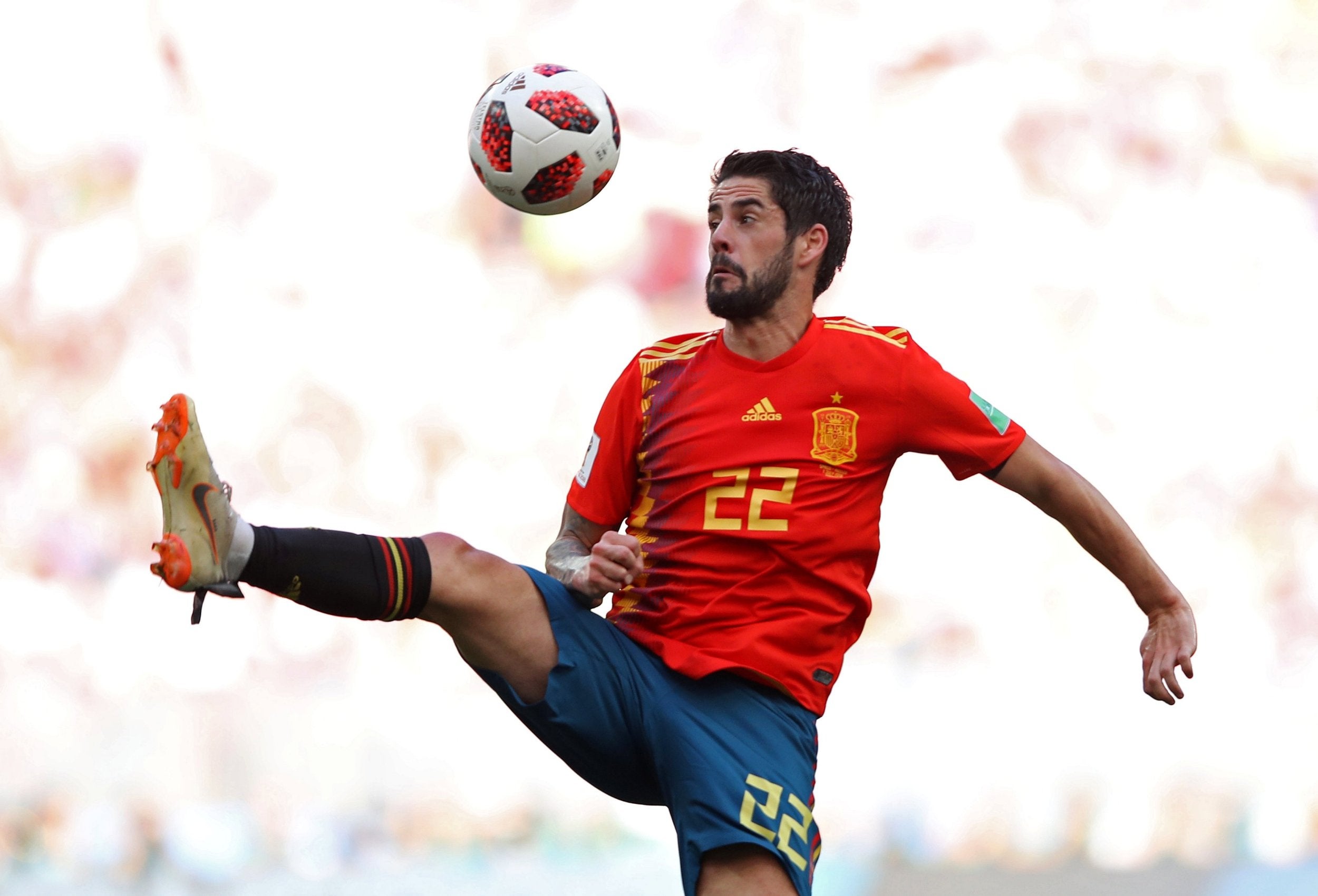World Cup 2018: Spain caught between two generations to be left behind by the game they built
Their unwillingness to take risks against Russia was a betrayal to the tiki-taka football that took Spain to their highest glory eight years ago

Your support helps us to tell the story
From reproductive rights to climate change to Big Tech, The Independent is on the ground when the story is developing. Whether it's investigating the financials of Elon Musk's pro-Trump PAC or producing our latest documentary, 'The A Word', which shines a light on the American women fighting for reproductive rights, we know how important it is to parse out the facts from the messaging.
At such a critical moment in US history, we need reporters on the ground. Your donation allows us to keep sending journalists to speak to both sides of the story.
The Independent is trusted by Americans across the entire political spectrum. And unlike many other quality news outlets, we choose not to lock Americans out of our reporting and analysis with paywalls. We believe quality journalism should be available to everyone, paid for by those who can afford it.
Your support makes all the difference.What began with the best intentions ended with Gerard PIque slamming left-footed shots at defenders and then a defeat by penalties - a reward to Russia for their stout defending and a lesson to the Spanish. It was a game in which Spain completed over 1000 passes but not a single decisive one. Boosted by nationalistic fervour and heaven knows what else, Russia locked held out La Roja and then knocked them out in a game that exposed so many of the Spanish side's flaws.
In an encounter that was, for almost two hours, utterly unspectacular, Spain played dominant football in-keeping with the stereotype of the tiki-taka generation, though it was so inefficient that it also managed to be in-keeping with the stereotype of Spanish society.
Andres Iniesta’s absence had placed a creative onus on Isco that he is good enough to cope with but there was something of a stylistic clash, with the Real Madrid man not quite operating in the same way as Iniesta and that clearly affected Spain’s ability to slice through Russia rather than just play in front of them.
Isco was very involved, he had lots of the ball and roamed free into dangerous positions but he also slowed attacks and created few goalscoring chances. There was almost a feeling that more of Spain’s younger generation, those who are more in tune with his stylistic quirks, could have been included to strike the right dynamic. Saul, who has been sadly absent from the tournament, might have made more sense than Sergio Busquets as a complementary piece with Russia posing so little threat. Thiago might have been a better mesh with David Silva
As good as Spain were in dominating possession (78% to 22%) there was still a feeling that this team is a little stuck between two ideas, two generations perhaps.
This Spanish team looks more like the 2010 version of La Roja than any other iteration in the intervening period but what that side had was a completely engrained, downright cemented understanding of what each other were doing. It was the same unit that had won Euro 2008 and the core of the team - Gerard Pique, Carles Puyol, Xavi, Iniesta and Pedro - all played together for Barcelona. This team owns the ball like that vintage but whereas the World Cup-winning side played a slow-slow-slow quick style, waiting for and manufacturing an opening before bursting through it, this team is slow-slow-slow with little explosion.

That they play the slow, patient style demonstrates complete faith in what they are doing but there is a difference between dominance and danger. One was on show today and the other was not.
No passage of play better emphasised that than the seemingly interminable sequence of sideways passes in the moments after Iniesta was introduced for Silva in a bid to spark Spain into life. The ball traversed the field from side-to-side three times with no player offering off-the-ball movement, nobody even running. There were red shirts drifting slowly into pockets of space but when the ball came they simply passed it backwards again. There were those standing still waiting for something to happen and there were those spreading the field but those 30-to-40 uninterrupted passes were the greatest example of the sterile possession that characterised this performance.
Nobody was willing to gamble. No-one was ready to play Russian roulette. Against a team that in extra-time could barely control a ball or break into a sprint, Spain played a cowardly football that betrayed the values they constantly champion. Knowing you're the better footballing team - in this case, the only one - should provoke you into action. Instead they allowed the game to simmer away into a shootout where their chances were reduced and, ultimately, eliminated.
If this was a performance caught between two generations that won't be an issue going forward. Iniesta, surely, will now step aside and allow the generation that was hoovering up youth titles when he was winning world ones to have their moment. The time may have come, in truth, and it may also be the hour for analysing what Spain are really trying to do - or, more importantly, how they are going to do it.
Join our commenting forum
Join thought-provoking conversations, follow other Independent readers and see their replies
Comments